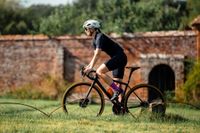Why cycling is great for your legs, lungs, immune system and mind, plus 11 other great benefits of life on two wheels
If you're considering joining the world of cycling, here are some good reasons to get on your bike this year
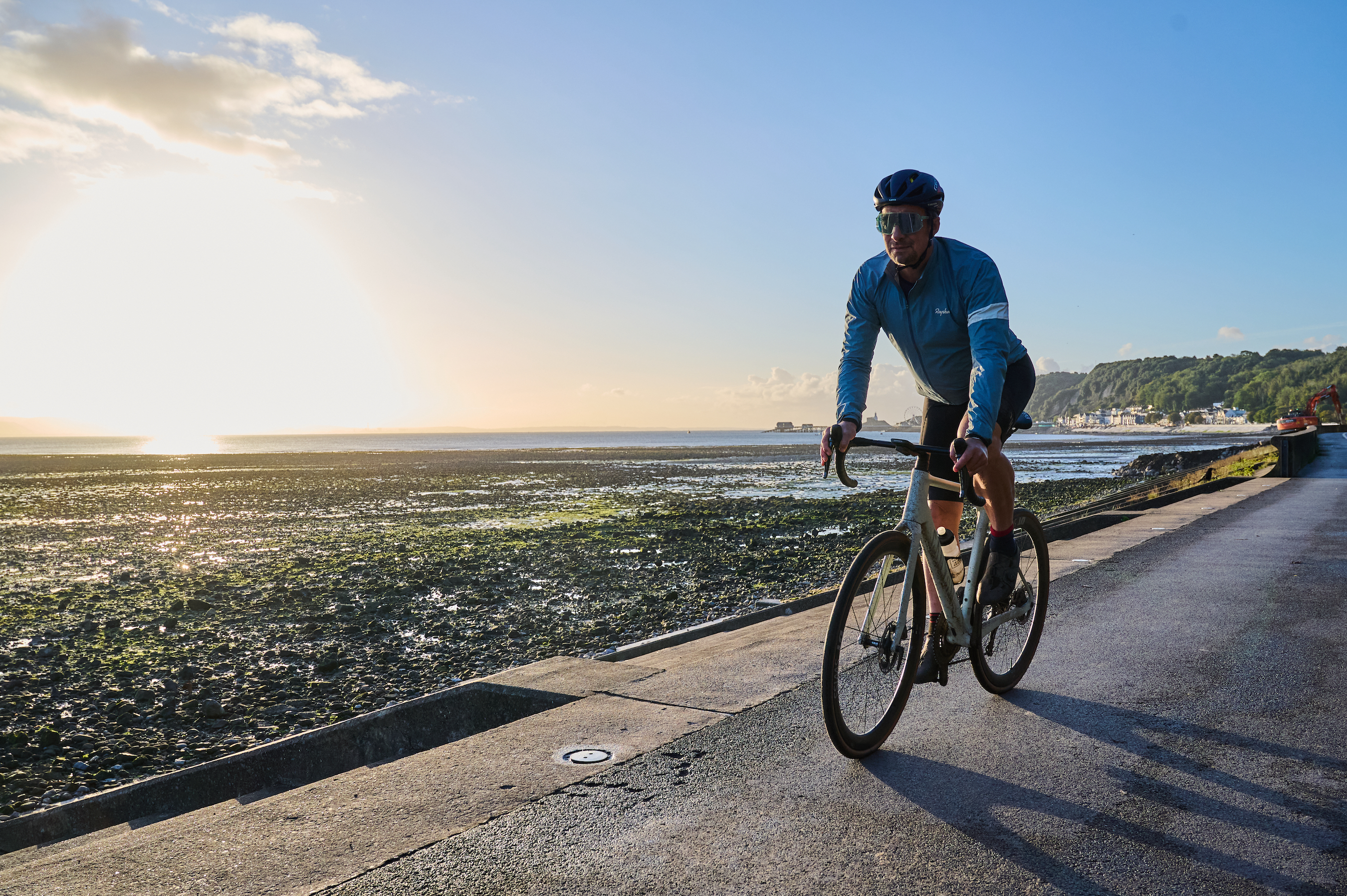
The latest race content, interviews, features, reviews and expert buying guides, direct to your inbox!
You are now subscribed
Your newsletter sign-up was successful
Even if you've only been riding for a little while, you'll probably already be well aware of many of the perks that cycling brings with it. But if you're just starting out – and even if you've let it lapse a while – you might welcome a reminder of the many positives it can bring to our lives.
Bonuses include those related to physical health and fitness of course, but they go well beyond that to include mental health, social wellbeing and much more besides.
When it comes to picking a new way to spend your time, there are of course plenty of options out there to choose from, but we think cycling is the best – here's why.
1. Cycling improves mental well-being
It is well established that physical exercise can act as a mood enhancer. A study by the YMCA for example showed that people who had a physically active lifestyle had a wellbeing score 32 per cent higher than inactive individuals.
There are so many ways that exercise can boost your mood: there's the basic release of adrenalin and endorphins, and the improved confidence that comes from achieving new things (such as completing a challenge, or getting closer to a goal such as riding your first century, or half-century).
A 2016 study in Qualitative Research in Sport, Exercise and Health went even further, citing cycling in the outdoors as being 'Green Exercise' that combined physical challenge to a connection with surroundings that yielded powerful benefits.
The study linked cycling in countryside environments to themes of mastery, uncomplicated joy, escape and rejuvenation. Participants enjoyed greater feelings of wellbeing and felt better able to cope with life's stresses, the study found.
The latest race content, interviews, features, reviews and expert buying guides, direct to your inbox!
As former Hour Record holder Graeme Obree – who has suffered from depression – says: “Getting out and riding will help [people suffering with depression]... Without cycling, I don’t know where I would be."
2. Cycling strengthens the immune system
Want to suffer with fewer colds? Cycling could be a great way to make that happen.
A study at Appalachian State University by Dr. David Nieman and colleagues looked at 1,000 adults up to the age of 85. Exercise, they found, had huge benefits on the health of the upper respiratory system and reduced incidences of the common cold.
Nieman said: “People can knock down sick days by about 40 percent by exercising aerobically on most days of the week while at the same time receiving many other exercise-related health benefits.”
Elsewhere researchers at Kings College, London showed that exercise helped prevent the gradual lowering of infection-fighting T-cell production as we age, with active participants showing similar T-cell levels to much younger participants.
Getting out on the bike for the commute offers you double-bubble protection against bugs and germs too, by keeping you out of those crowded and humid buses and trains on the way to work.
Don't overdo it though. There is some evidence to suggest that immediately after intense exercise, such as a long ride or an interval training session, your immune system is lowered – but proper post-exercise recovery such as eating and sleeping well can help to reverse this.
3. Cycling can help you lose weight
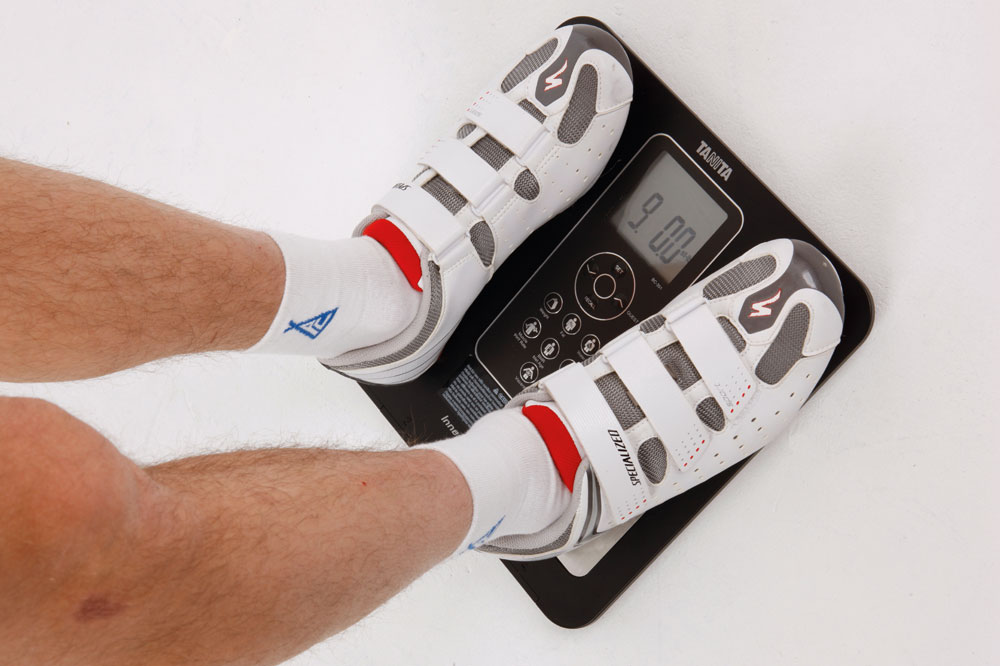
Cycling can help support healthy weight loss
If you feel your health would benefit from dropping a kilo or two, cycling can be a great way to support weight loss alongside a rounded and healthful diet.
Weight loss is, broadly, a question of burning more calories than you consume – and cycling is a bit of a secret weapon on that front, using up between 400 and 1,000 an hour, depending on intensity and rider weight.
There are other factors at play though – the make-up of the calories you consume will affect overall health, your performance on the bike, as does the quality of your sleep.
On-bike fuelling remains important too, especially for long or intense rides that can otherwise leave you hungry and craving midnight snacks.
If you eat a healthy diet that creates a calorie deficit (one that is controlled and, crucially, does not put you at risk of long-term health conditions) you should lose weight.
4. Cycling builds muscle
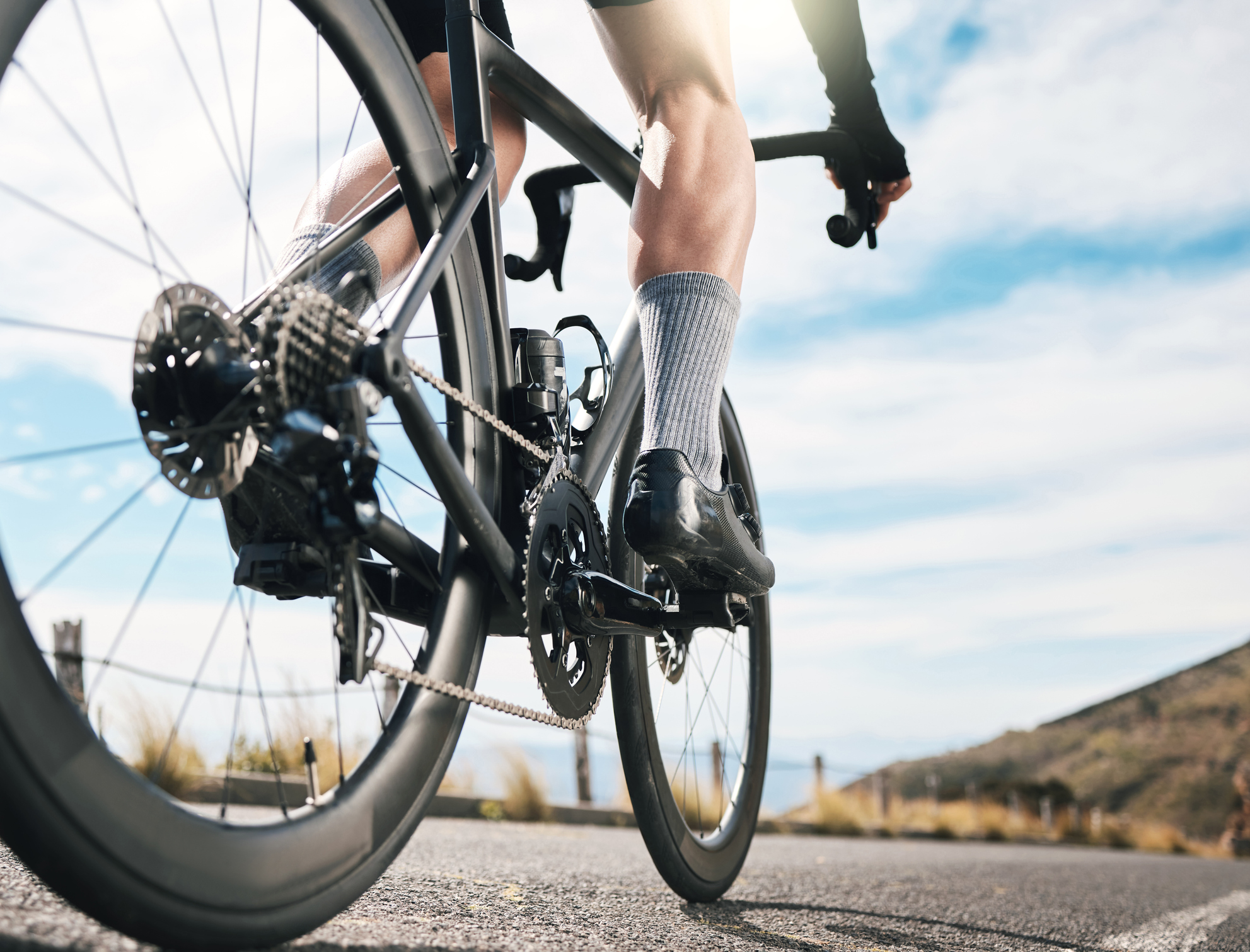
Cycling can be a great muscle builder
It goes without saying that cycling doesn't only use your aerobic system – it uses your muscles too. Ergo, cycling is going to build muscle – particularly around the glutes, hamstrings, quads, and calves.
Anyone recoiling at the idea of trying to drag a bodybuilder-style physique up the hills need not worry – you'd need to spend a lot of time in the gym with heavy weights before ending up with quads like a track sprinter. But you will develop a nice toned derriere.
Another benefit can be that more muscle burn more calories even at rest – one 2022 study found muscle burned 15kcal per kilo per day. Not much, but still around seven times more than fat.
5. Cycling means you can eat more

Chow down breakfast before AND after a ride
Let's talk about the benefits of riding to work. As you probably guessed by the title of this section, they extend beyond even the fitness, health and economic advantages. That's right – you get to eat breakfast twice.
Given your half hour ride to work should be burning between 200 and 500 calories, you'll want to eat something beforehand. And then you get to enjoy your breakfast proper, sitting at your desk and feeling pretty smug about yourself.
If you're serious about burning fat, you could do your morning ride fasted (sans breakfast), but this a training tool best used with care and in moderation, to avoid negative effects on your health.
6. Cycling improves lung health
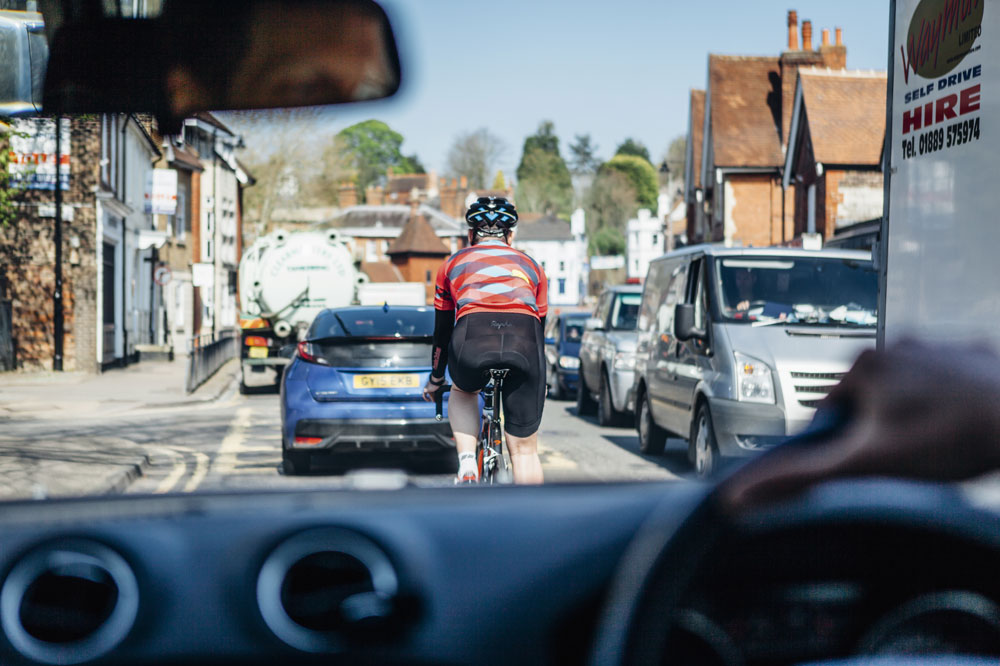
Unsurprisingly, given how much work the lungs do during aerobic exercise, cycling strengthens the lungs. But what about all those car exhaust fumes?
You might assume that riding in traffic makes cyclist more vulnerable in this respect than pretty much anyone else. But studies suggest the opposite is in fact the case.
A study by the Healthy Air Campaign, Kings College London, and Camden Council, saw air pollution detectors fitted to a driver, a bus user, a pedestrian and a cyclist using a busy route through central London.
The results showed that the driver experienced five times higher pollution levels than the cyclist, as well as three and a half more than the walker and two and a half times more than the bus user. Long story short: the cyclist won.
Of course, if your riding is mainly in the little-used lanes, or even off-road on a gravel bike, you'll encounter little to no exhaust fumes at all.
7. Cycling cuts heart disease and cancer risk
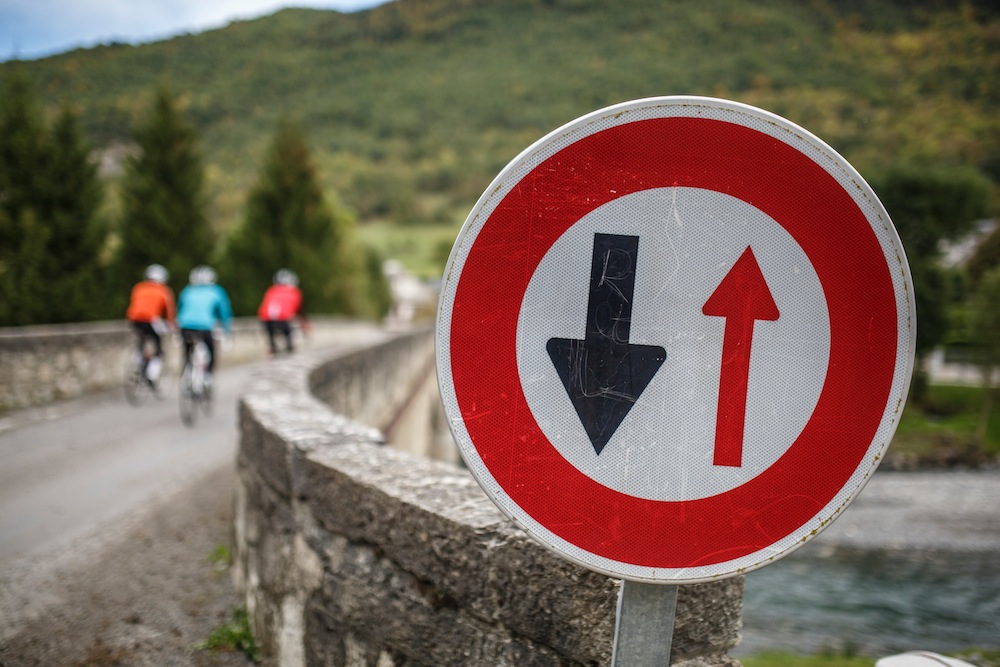
Up your heart health and life expectancy by bike
Cycling raises your heart rate and gets the blood pumping round your body, and it burns calories, limiting the chance of your being overweight. No wonder it is recommended by the NHS as being a healthy way to lower your risk of developing major illnesses such as heart disease and cancer.
In a 2017 study conducted by the University of Glasgow, researchers looked at over 260,000 individuals over the course of five years - and found that cycling to work can cut a rider's risk of developing heart disease or cancer almost in half. The full study can be read here.
Dr. Jason Gill of the Institute of Cardiovascular and Medical Sciences commented: “Cycling all or part of the way to work was associated with substantially lower risk of adverse health outcomes."
8. Cycling is low impact
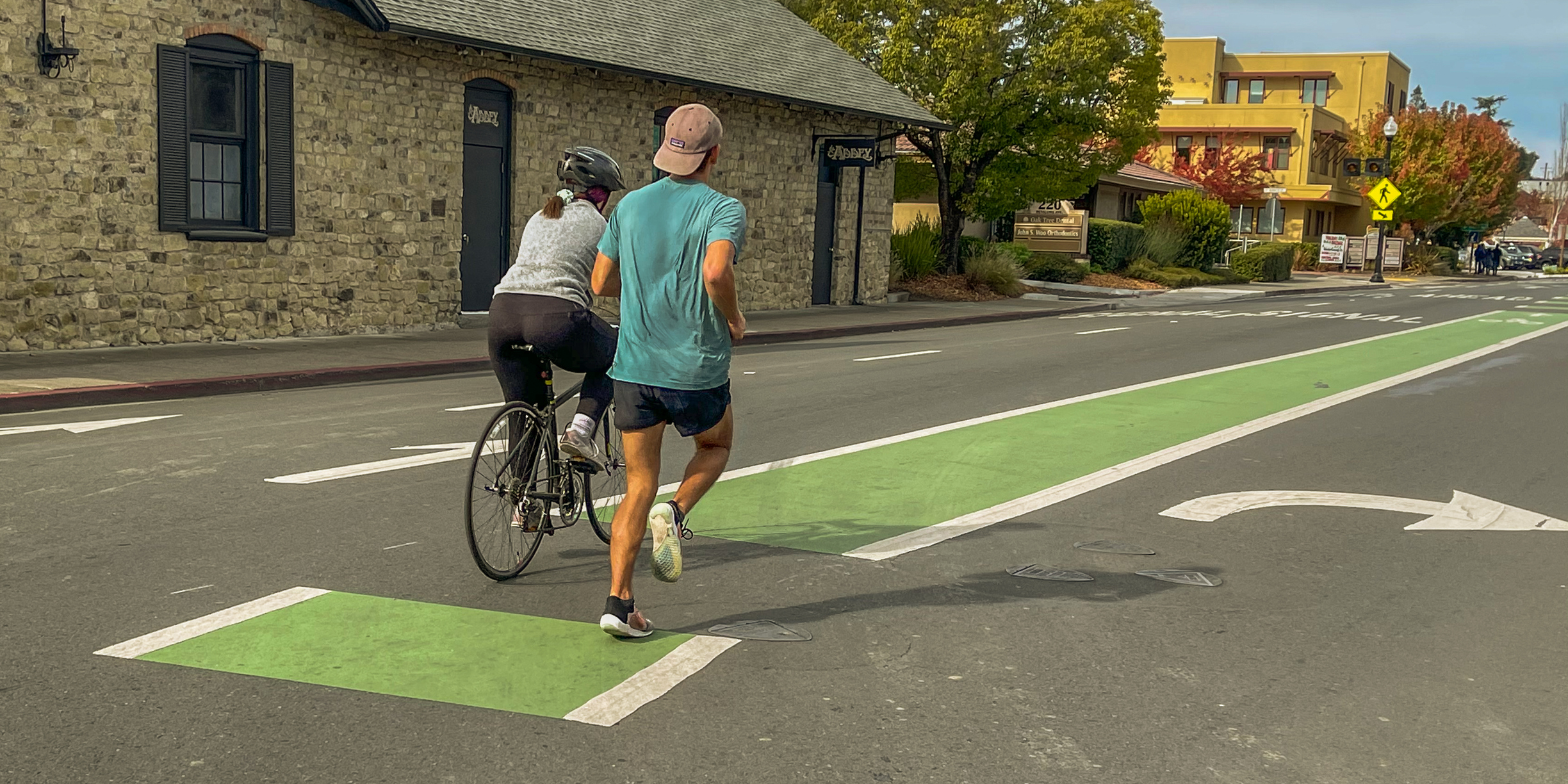
Cycling is a low impact form of exercise
As we've alluded to above in this article, your health will benefit from exercise, full stop. But – just in case you were thinking of just going for a quick run instead – we're pretty convinced that cycling sits among the top branches of the exercise tree.
One key thing to recommend it is that it's non weight-bearing, which makes it superb when it comes to avoiding injury, or recovering from it.
In one study that compared long distance runners and cyclists, scientists found the runners experienced 133-144 per cent more muscle damage, 256 per cent more inflammation and 87 per cent higher DOMS (delayed onset muscle soreness).
Whilst cycling is less likely to result in an overuse injury, that doesn't give you carte blanche to go crazy – build up your riding sensibly. A professional bike fit is a good idea if you're at all unsure about your set up.
Cycling's non weight-bearing nature also means that it does not do as much to increase bone density as other sports – so adding some resistance training to your routine is a great idea.
9. Cycling saves time
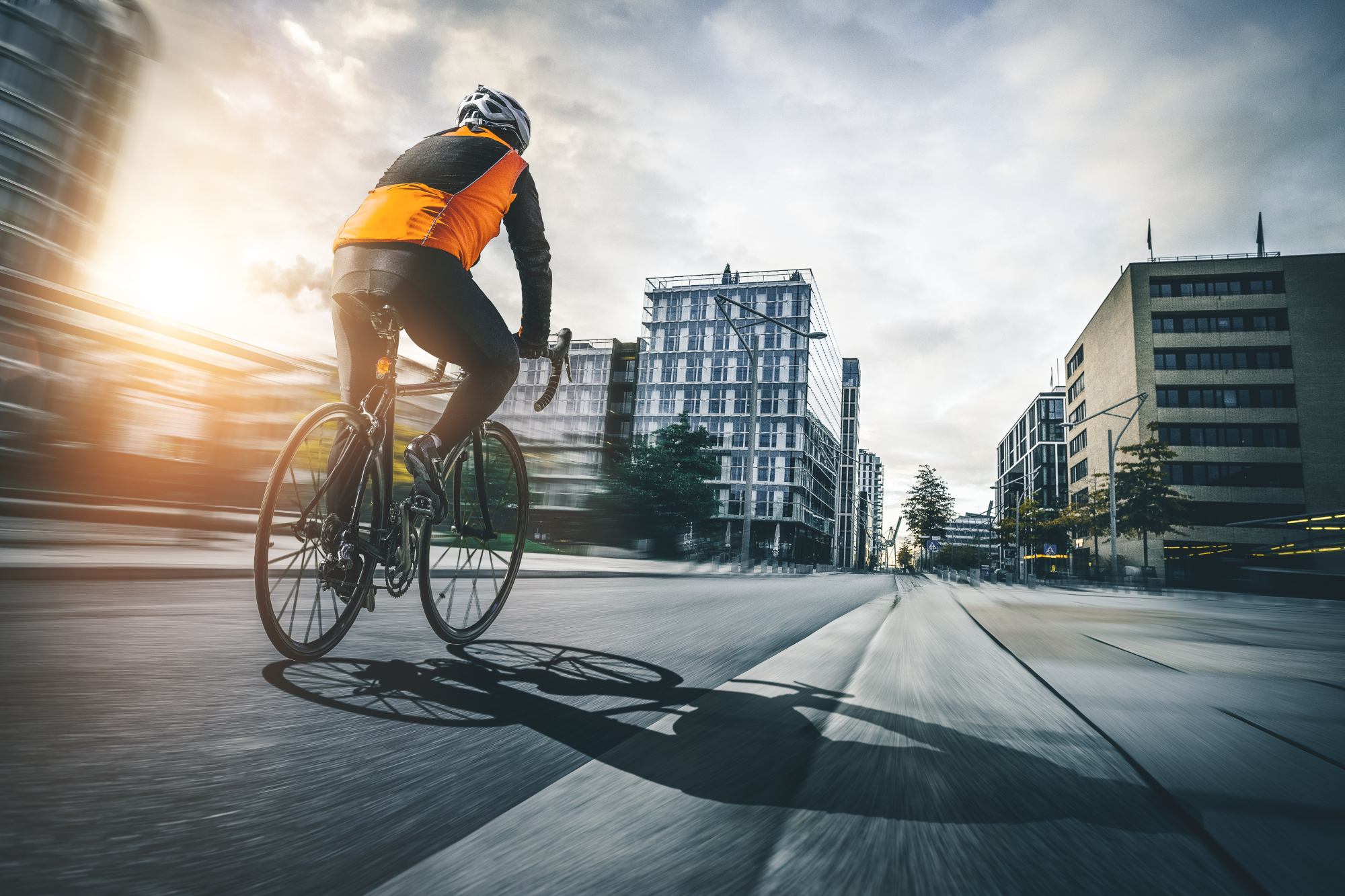
Cycle to save time (and money)
As well as being free of charge (once you've bought the bike of course), shorter journeys by bike can often get you where you need to go quicker than by car.
Think about it – no traffic jams, no waiting for the bus or train, no queuing for the ticket machine; any number of cut-throughs are available to you, and you can park not just right outside your place of work but sometimes actually at your desk. What's not to love?
Short journeys are also a major contributor to global pollution levels, and often involve a fair amount of stationary time staring at the bumper in front. Get on the bike, and you'll save on petrol or cash on public transport, as well as time.
10. Cycling improves navigational skills
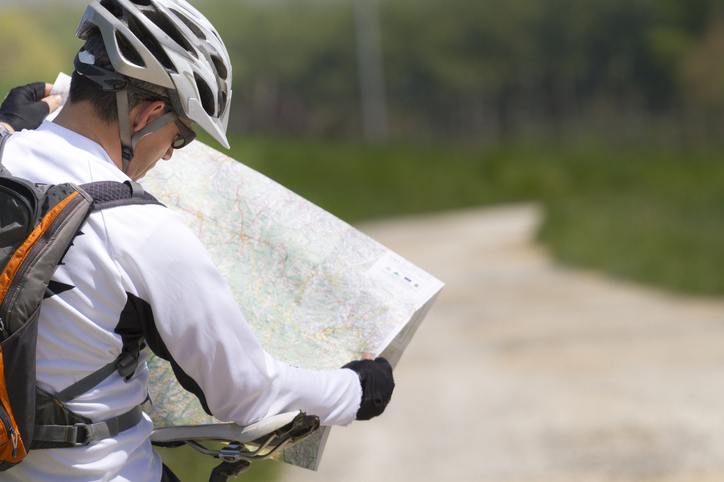
Get lost in the lanes, and let your sense of direction get you home. (Andy Jones)
If reading a map is like trying to read code to you, cycling will almost certainly improve that. Admittedly, given the popularity of GPS computers and phone mapping apps, there's not much call to hone your inner sense of direction these days.
But there are still plenty of occasions where these options are not practical or simply not available, so being able to find your way around really does come in handy.
As you explore your local roads and trails – and eventually even farther away too – your inbuilt compass will get a great workout. Combine it with checking up where you're headed on a map (even one on a phone or GPS computer), and you will naturally improve at reading all those squiggly lines too.
11. Cycling can improve your sex life
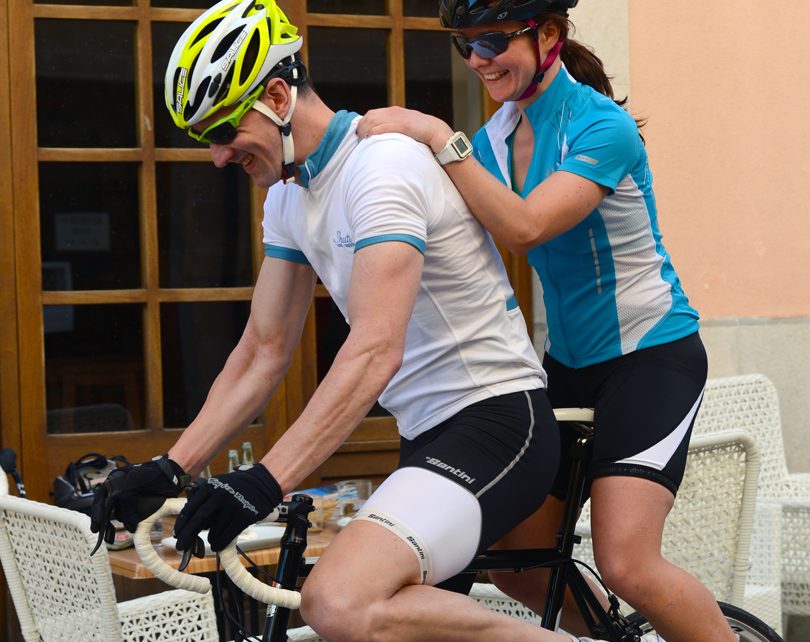
Cycling could improve your sex life
It's official – cycling is sexy. And we're not just talking about all that skin-tight Lycra. Numerous studies have shown that cardiovascular exercise can improve sexual function in both men and women, which is not only great for your relationship but great for your overall health, too.
One 2014 study asserted that "frequent sex can improve… general quality of life and may even extend our life by years."
Elsewhere Dr Matthew Forsyth, a urologist and cyclist from Portland, Oregon, says: “All these muscles [worked on the bike] are used during intercourse. The better developed these muscles, the longer and more athletic intercourse will be.”
The message is clear – get on the bike and get out and ride.
12. Cycling helps you sleep better

Ride a bike for a good night's sleep
If you think you're getting better sleep thanks to cycling, well, you probably think right – that much has been proven by science.
Researchers at the University of Georgia studied men and women aged 20 to 85 over a period of 35 years, and found that a drop in fitness of 2 per cent for men and 4 per cent for women resulted in sleep problems.
Dr Rodney Dishman was one of the lead authors, and commented: "The steepest decline in cardiorespiratory fitness happens between ages 40 and 60. This is also when problems of sleep duration and quality are elevated."
The study authors suggested that the possible reasons for the sleep improvement could include exercise's ability to reduce anxiety. Cycling also protects against weight gain with age, which is another cause of poor sleep.
13. Cycling boosts your brain power
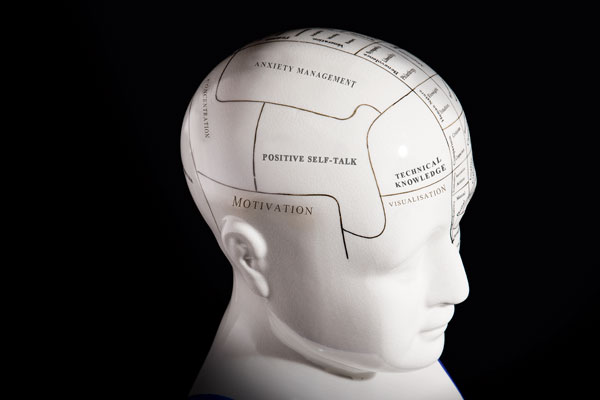
Up the power of your noggin
Whatever you think about going for a ride, there's a good chance you'll think it better once you've actually saddled up and got out there. That's because exercise and brain health go hand-in-hand.
A 2019 study showed that older cyclists improved their cognitive function in just eight weeks thanks to outdoor riding, while a study in 2013 demonstrated that during exercise, cyclists' blood flow in the brain rose by 28 per cent, and up to 70 per cent in specific areas. On top of that, blood flow stayed elevated by 40 per cent in some areas, even after exercise.
Improved blood flow is good because the red stuff delivers all sorts of goodness that keep us healthy. The study concluded that we should cycle for 45-60 minutes, at 75-85 per cent of max 'heart rate reserve' (max heart rate minus resting heart rate) four times a week.
14. Cycling improves spatial awareness
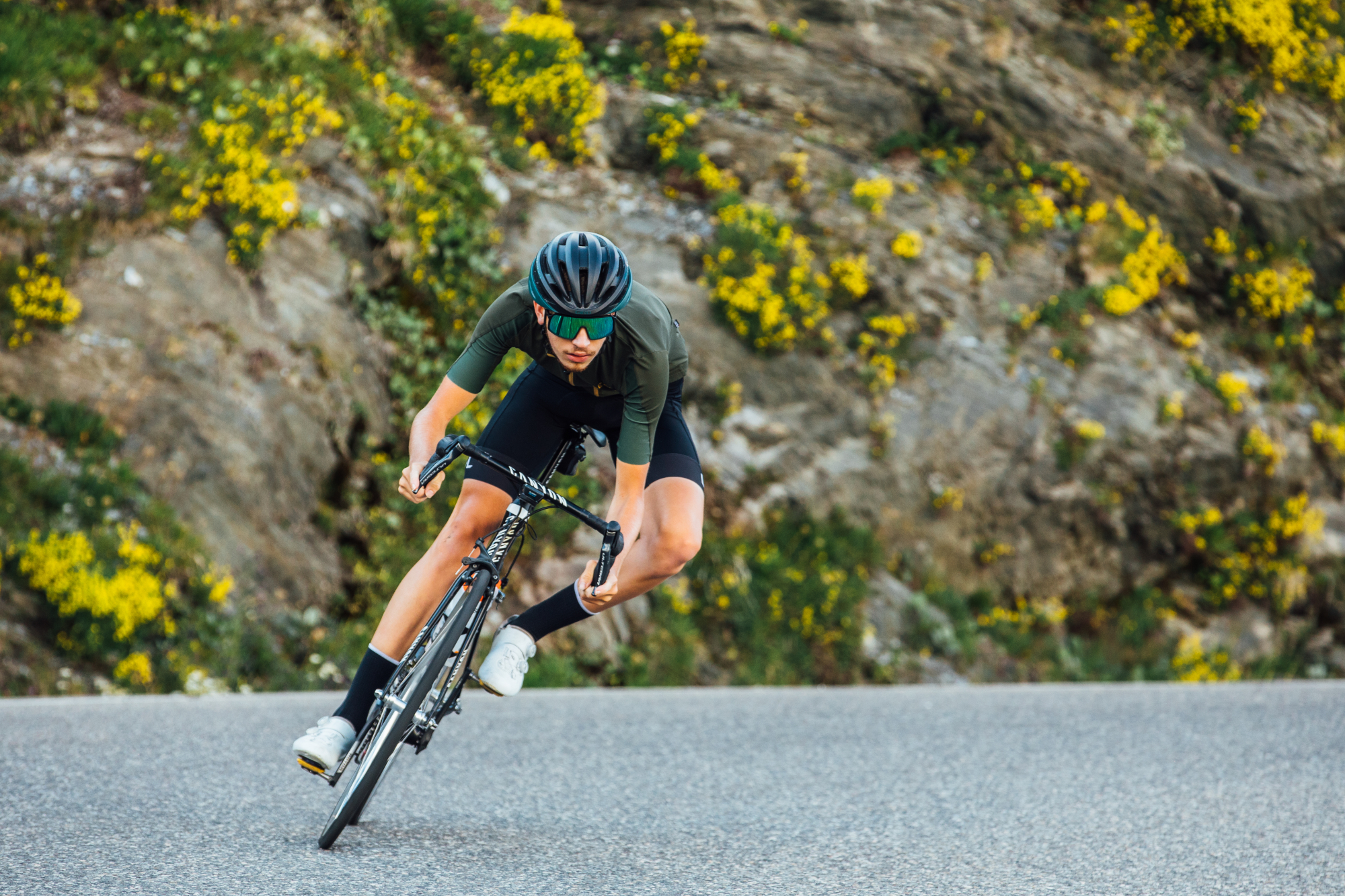
Improve your handling skills - on and off the bike!
Unless you're doing all of your riding indoors, there are numerous technical elements to cycling that require constant use of your spatial awareness and adjustments to your balance.
This aspect of bike riding often goes completely overlooked, and yet it is a major plus-point and super important for health. Better balance is associated with significantly improved longevity, according to a 2022 study published in the British Journal of Sports and Medicine.
The great news is that – according to a separate Australian study – cycling just one hour a week was associated with significant improvements in balance.
So if you're having a wobble about whether to go riding, we think you know what to do.
15. Cycling means new friends
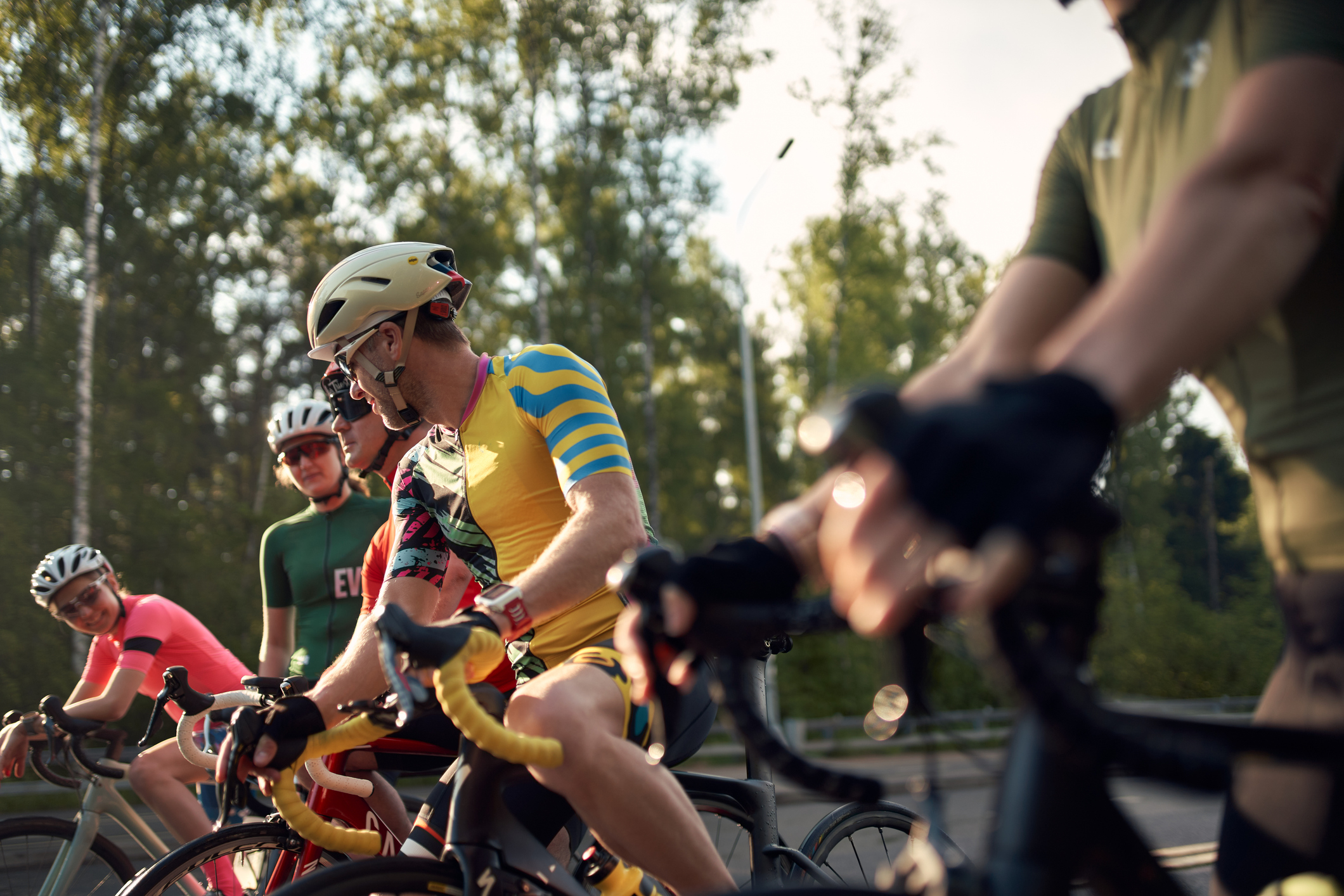
Cyclists from VC Colets
Yes you can ride alone, and sometimes practicalities dictates that you need to. But in our experience, the best and most memorable rides are those done in good company.
Luckily there's no shortage of this in the cycling world. Wherever you live, you should be able to find a club to join and a weekend ride to tag along with.
Clubs are a great way to learn about riding and racing, but there's more to them than that. They can be a great social base, with new friends, social events and even trips away to enjoy.
Have a search about to find your friendliest local club. British Cycling has a useful club finder tool on its website, while Facebook and other social media can work well too. Before you know it you'll have an armoury of new skills, new routes and new riding buddies.
So, that's fairly conclusive! All that remains is to check out our beginner advice for cyclists, buy a road bike if you've not already, and decide how often you want to get out and ride!
Michelle Arthurs-Brennan the Editor of Cycling Weekly website. An NCTJ qualified traditional journalist by trade, Michelle began her career working for local newspapers. She's worked within the cycling industry since 2012, and joined the Cycling Weekly team in 2017, having previously been Editor at Total Women's Cycling. Prior to welcoming her first daughter in 2022, Michelle raced on the road, track, and in time trials, and still rides as much as she can - albeit a fair proportion indoors, for now.
Michelle is on maternity leave from April 2025 until spring 2026.
You must confirm your public display name before commenting
Please logout and then login again, you will then be prompted to enter your display name.

